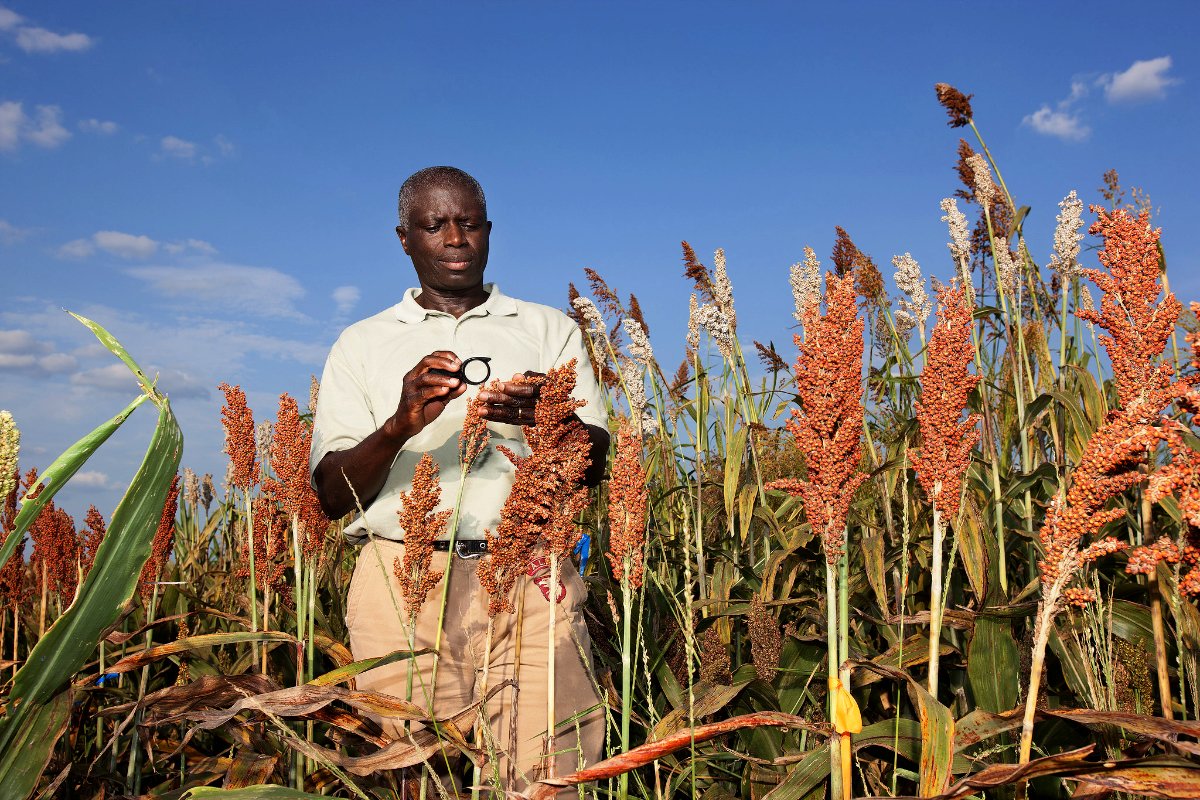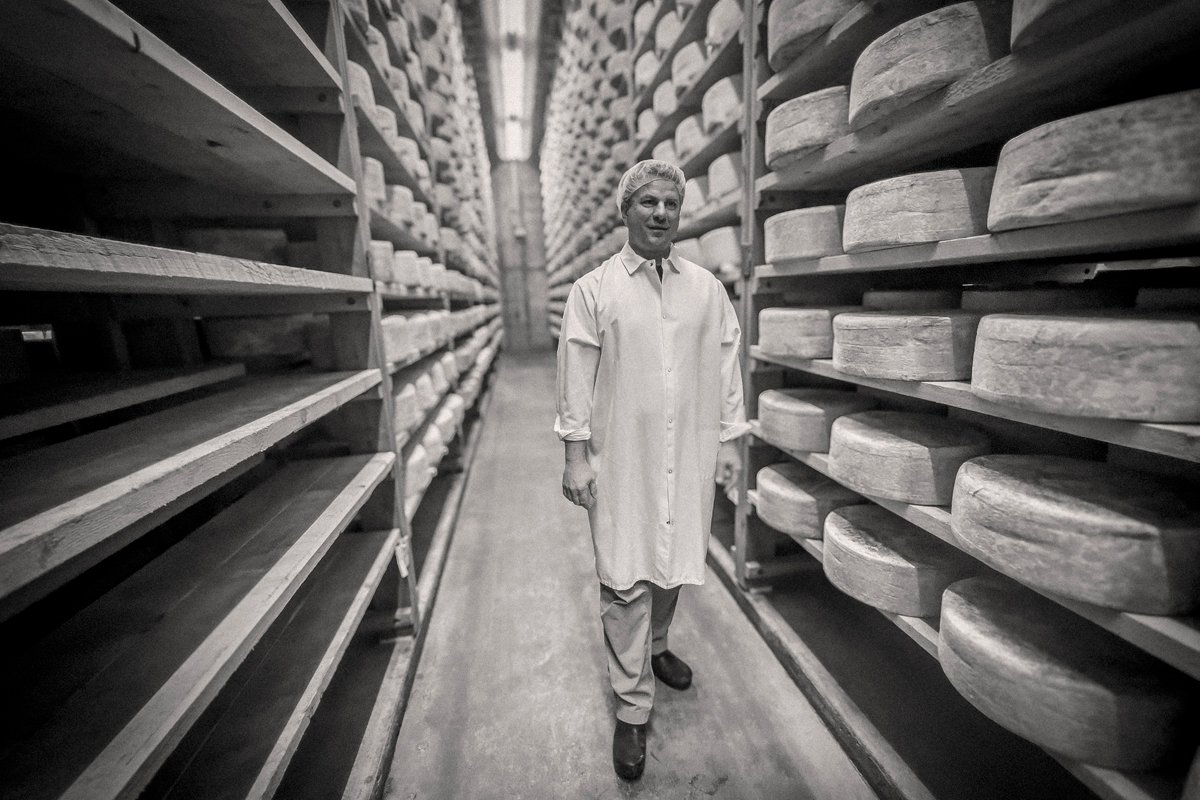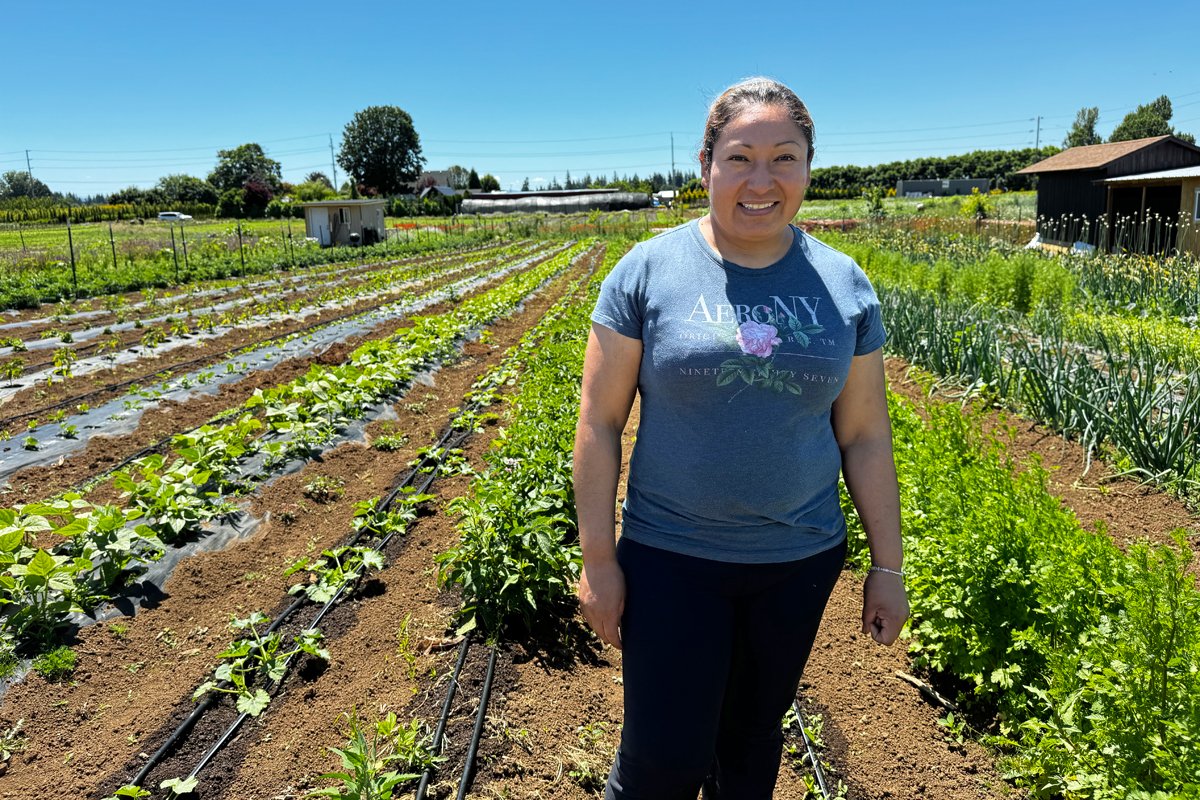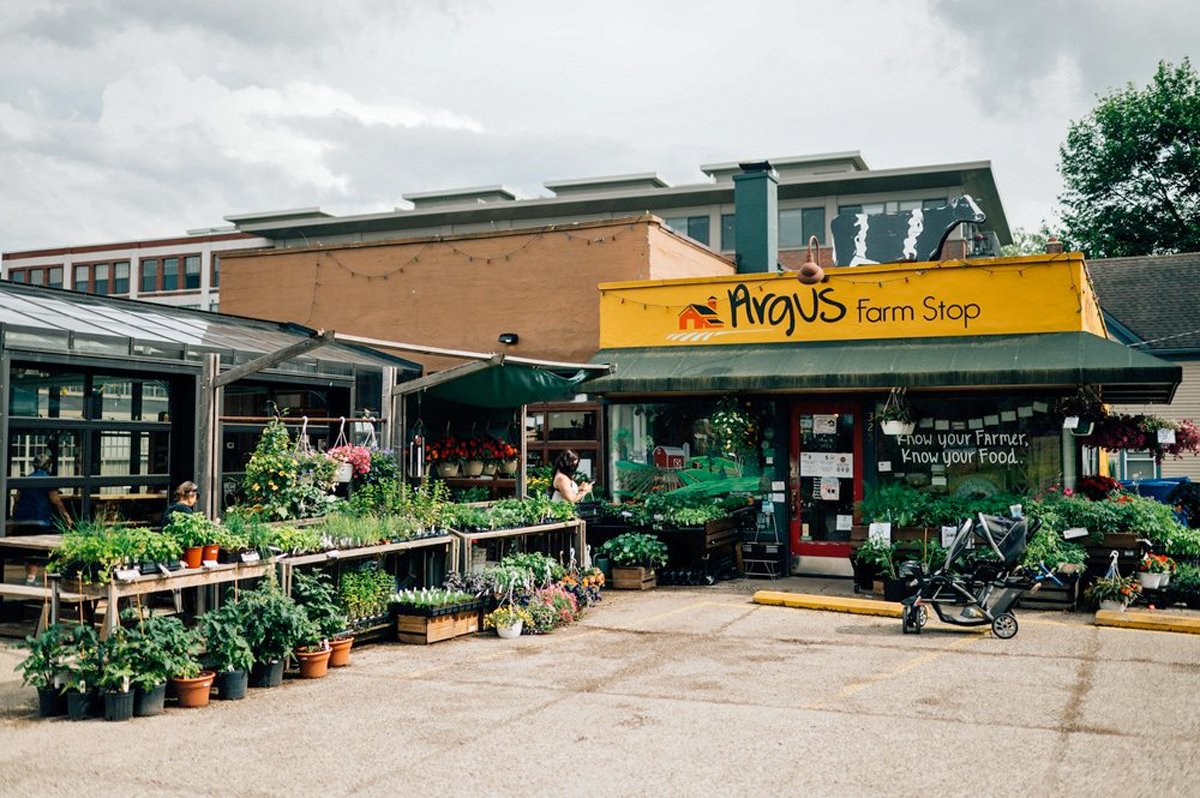In addition to exploring the many ways in which the changing climate is impacting our food system, we continued to make a concerted effort this year to focus on climate change solutions in our coverage.

In addition to exploring the many ways in which the changing climate is impacting our food system, we continued to make a concerted effort this year to focus on climate change solutions in our coverage.
December 26, 2023

A USDA scientist examines sorghum plants. (USDA photo by Peggy Greb)
Civil Eats has long covered the intersection of food, agriculture, and the climate crisis, but the droughts, floods, wildfires, and weather extremes—as well as the warnings from scientists—have grown ever more dire.
The food system—and agriculture in particular—is a major contributor to climate change, but as our reporting demonstrates, the sector can also play a significant role in mitigating the impacts of climate change.
In addition to exploring the many ways in which the climate crisis is impacting and will continue to impact our food system, we have dedicated significant resources to focusing on solutions in our coverage, including how farmers are experimenting with more resilient crops, as well as adapting their practices to conserve water and store carbon in the soil.
We will continue to tell the stories of the innovative thinkers across our food system pursuing efforts to mitigate damage, boost resilience, and adapt to new realities. Here are some of our most important climate stories this year.

Image courtesy of Country Natural Beef
Can This Beef Cooperative Become ‘the West’s Largest Climate-Smart Ranching Program’?
In an industry dominated by a handful of large meatpacking companies, member-owned Country Natural Beef has plans to document its ranchers’ practices and encourage a shift toward more regenerative practices.
An Ancient Grain Made New Again: How Sorghum Could Help U.S. Farms Adapt to Climate Change
Sorghum—popular among young, BIPOC, and under-resourced farmers—has extra long roots that allow it to withstand drought and sequester greenhouse gasses.
Could This Mobile, Solar-Powered Livestock Barn Reshape the Corn Belt?
The ‘stock cropper’ method—raising chickens, hogs, and sheep between rows of grains—promises much-needed change to the U.S. farm landscape. Now it’s on the verge of scaling up.
Perennial Crops Boost Biodiversity Both On and Off Farms. Researchers Explain How.
Above and belowground, perennial crops including wheat, grasses, trees, and more provide habitat and nutrition to creatures that help make ecosystems whole.

Photo credit: Hilary Macht
Scientists Scramble to Help Bay Scallops Survive Climate Change
Researchers begin selective breeding and other initiatives in hopes of saving the East Coast’s last wild bay scallop fisheries.
These Farmers Recharged Groundwater by Catching Atmospheric Rivers
After years of drought and dozens of recent atmospheric rivers, Central California farmers have revamped an old practice: intentionally flooding fields for deep irrigation and restoration of underground aquifers.

Photo courtesy of Chris Smith
A Radical Seed-Breeding Project Could Help Southern Farmers Adapt to Climate Change
The Utopian Seed Project is growing dozens of types of okra in one North Carolina field, creating genetic collisions that build new, resilient varieties. The group is working to adapt more food crops to the changing climate.
Shell or High Water: Rebuilding Oyster Reefs Is a Climate Solution
Oyster reefs clean water, repair ecosystems, and help prevent flooding. But a lack of shells is forcing restoration projects across the country to seek out alternative structures.
Comic: To Fight Climate Change, This Research Farm Is Pioneering Regenerative Practices
In this illustrated report, we explore how the Maine-based Wolfe’s Neck Center is breaking new ground in soil health, soil monitoring, and other climate-smart technologies.

Photo credit: John Elk, Getty Images
How Centuries of Extractive Agriculture Helped Set the Stage for the Maui Fires
The sugar and pineapple plantations that dominate the Hawaiian island changed the landscape, how the water flows, and contributed to the devastation of the fire.
Climate Change Threatens the Agritourism That Helps Small Farms Survive
Extreme heat, intense rains and droughts, and other climate impacts have put a dent in the number of people willing to visit farms this summer.
Investors Continue to Speculate on Colorado Water
A group seeking to buy water from farm and ranch lands is turning its efforts to electing water board representatives—who could then make water deals with suburbs easier.
How Crop Insurance Prevents Some Farmers From Adapting to Climate Change
The Federal Crop Insurance Program helps steer the direction of U.S. agriculture. But advocates and farmers say its policies have often failed to benefit the most climate-adaptive farms—and penalizes farmers for adopting some climate-friendly strategies.
New Orleans Urban Farmers Prepare for Overlapping Climate Disasters
Sprout NOLA has long been helping farmers in the aftermath of hurricanes. Now, it is working on expanding its efforts to include a range of unprecedented climate disasters in Louisiana, including extreme heat, drought, and saltwater intrusion.

September 4, 2024
By paying top dollar for milk and sourcing within 15 miles of its creamery, Jasper Hill supports an entire community.
September 3, 2024

August 27, 2024

August 26, 2024

August 20, 2024

August 13, 2024

August 12, 2024

Like the story?
Join the conversation.